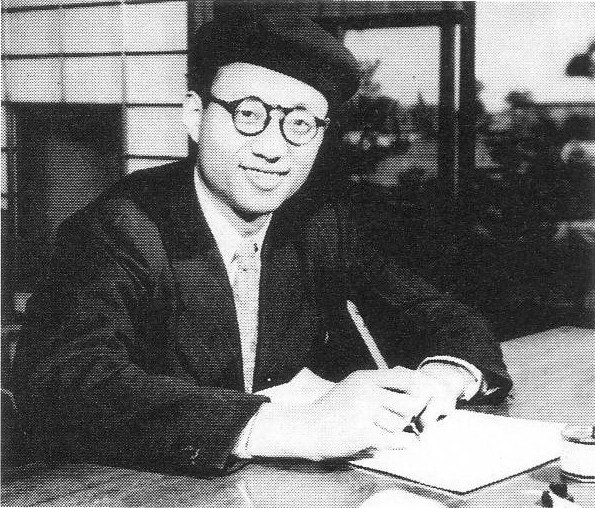Quoted in Helen McCarthy, Osamu Tezuka: God of manga , translated by Fabio Deotto, Edizioni BD, 2010, back cover.
Oszamu Tezuka: Idézetek angolul
That was their merit as propaganda against the Japanese.
Tezuka Osamu and American Comics http://www.tcj.com/tezuka-osamu-and-american-comics/, (1973), as quoted by Ryan Holmberg, The Comics Journal, Jul 16, 2012.
As quoted in Transnational Perspectives on Graphic Narratives https://books.google.com/books?isbn=1441185755 p. 5
Forrás: http://www.tcj.com/tezuka-osamu-and-american-comics/ Tezuka Osamu and American Comics
From Interview to the author , in Osamu Tezuka, Jumping ; quoted in AA.VV., Osamu Tezuka: A Manga Biography , vol. 4, translated by Marta Fogato, Coconino Press, Bologna, 2001, p. 178. ISBN 8888063188
Forrás: http://www.tcj.com/tezuka-osamu-and-american-comics/ Tezuka Osamu and American Comics
From My Diary manga , 1966; quoted in AA.VV., Osamu Tezuka: A Manga Biography , vol. 3, translated by Marta Fogato, Coconino Press, Bologna, 2001, p. 26. ISBN 8888063102
As quoted in Japan-zone http://www.japan-zone.com/modern/tezuka_osamu.shtml
From the intervention to the fifteenth national conference on school health and safety in schools , 1987; quoted in AA.VV., Osamu Tezuka: A Manga Biography , vol. 2, translated by Marta Fogato, Coconino Press, Bologna, 2001, p. 79. ISBN 8888063072
From Save the Planet of glass ; quoted in AA.VV., Osamu Tezuka: A Manga Biography , vol. 1, translated by Marta Fogato, Coconino Press, Bologna, 2000, p. 106. ISBN 888806303X
Since I cartoonist ; quoted in AA.VV., Osamu Tezuka: A Manga Biography , vol. 3, translated by Marta Fogato, Coconino Press, Bologna, 2001, p. 73.
From the Afterword to April 1978 MW , vol. 3, translation by Francesco Nicodemus, Hazard Editions, Milan, 2005, p. 193. ISBN 887502037X
About
Forrás: https://www.japantimes.co.jp/culture/2016/08/06/books/book-reviews/life-japans-god-manga/#.XSjK_VVKi70 "The life of Osamu Tezuka, Japan’s ‘god of manga’"
From the Afterword to April 1978 MW , vol. 3, translation by Francesco Nicodemus, Hazard Editions, Milan, 2005, p. 193. ISBN 887502037X
From the Afterword to April 1978 MW , vol. 3, translation by Francesco Nicodemus, Hazard Editions, Milan, 2005, p. 193. ISBN 887502037X
